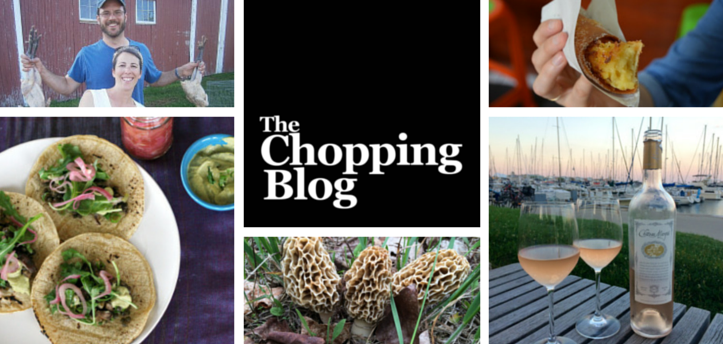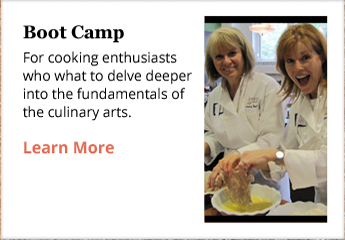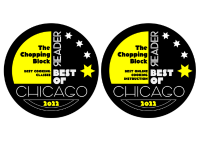Although the holidays are over, I have a fun gifting concept that could be used anytime for special occasions. I have been growing a dwarf Meyer lemon tree for a few years now. This fall, my first batch of lemons came to fruition and although it was exciting, I felt that I wanted to keep them as a memory sake. But lemons only last so long, and so my options relied on three ways of preservation: sugar, salt and alcohol.
Sugar and salt are fantastic preservation techniques which use the inherent properties of salt and sugar to reduce the bacterial threat to the food being preserved. Bacteria requires water to survive and if you can reduce the “free water” or water that has not been bound by another molecule, you can extend the life of whatever you are preserving by astounding amounts. This can be done by dehydrating the item, candying it, jellying it, curing it, brining it, pickling it or any other variation of salt and sugar-based preservation.
The best options I had for these lemons would be to make a jelly or jam, candying the lemons into little chewy treats, or maybe make a lemon salt. With the amount of lemons I had, jelly, jam and candying would limit me to just a few gifts to be given and saved. Making a lemon salt, although interesting, didn’t really showcase the unique flavor of these sweet Meyer lemons and may be tough for some people to utilize. As my options dwindled, I figured the most efficient way to turn my three lemons into a fun gift for many people, and still give myself a memory to try down the road was going to be alcohol.
The most common alcohol preservation for lemons would be limoncello. This is delicious, but after a few conversations with my colleague and fellow blogger, Karen aka @singinginthekitchen, I was informed that Meyer lemons are not a great choice for limoncello. She said the mandarin orange that is bred into Meyer lemons' DNA tends to make the limoncello more orange than yellow and the flavor tends to be “off.” Having this tidbit of information made me pump the brakes a bit and rethink my options. As limoncello is a cross between alcohol and sugar preservation, I thought this may have something to do with the “off” taste and odd color. Sugar is not only a sweetening agent, it is also a flavor enhancer and as flavor is enhanced, you tend to notice some of the more subtle flavors that may have hidden in the background more. This was when I decided to try making my lemons into a lemon vodka! By using less sugar, I can substitute a little bit of honey to balance the sweetness without bringing forward the subtle bergamot flavors that are less desired in my final flavor.
You'll see from the pictures how simple this can be to do at home.
Lemon Vodka
Equipment:
Lemons
Vodka
Mason jars
Blender
Zester
Sharp Chef's knife
I choose a reasonably priced vodka that had a smooth subtle flavor that wouldn’t be too aggressive for the lemons. I also choose to store my vodka in Mason jars for the short term in order to let the flavors meld for a while before re-packaging it into miniature single shot bottles to gift. With the lemons, vodka, and containers, you also need a blender, a zester and a sharp Chef's knife.
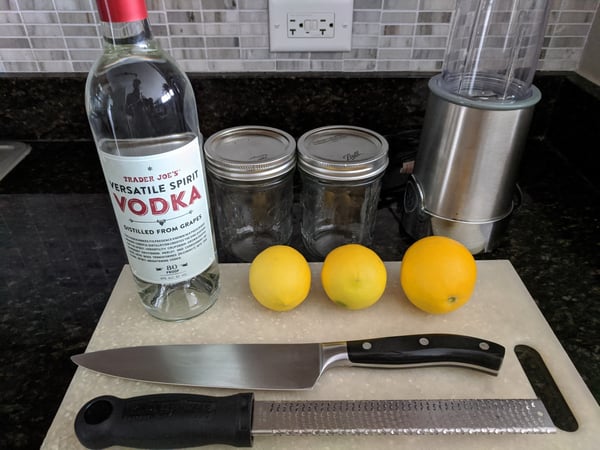
Instructions:
1. Begin by zesting the lemons. By removing the outermost layer of skin and saving it you can blend it into your vodka to enhance your flavor drastically!
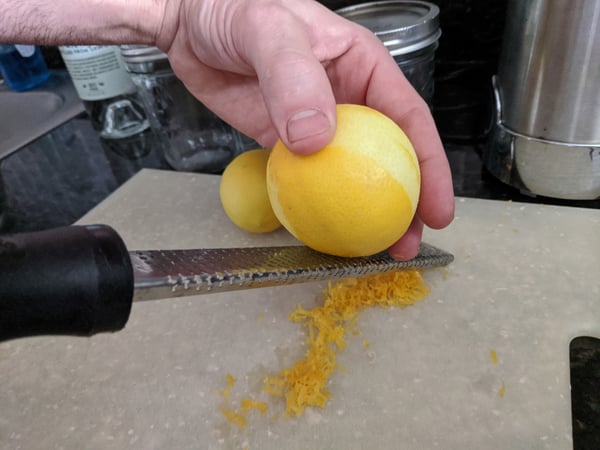
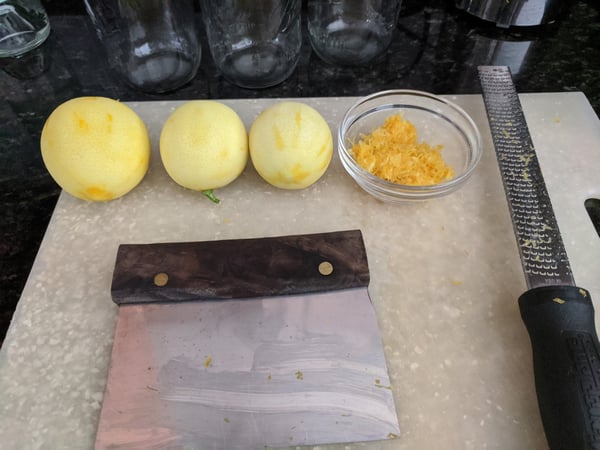
2. After you have removed your zest you will see the pith or white rind that is under the outer yellow skin. This is extremely bitter, so I cut it off with my chef knife to make sure that it was not a part of my vodka.
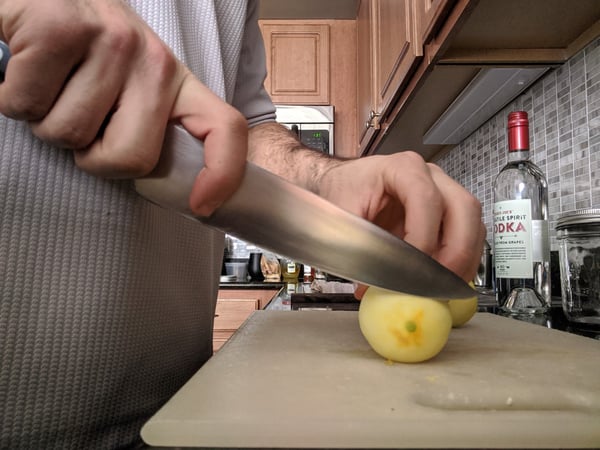
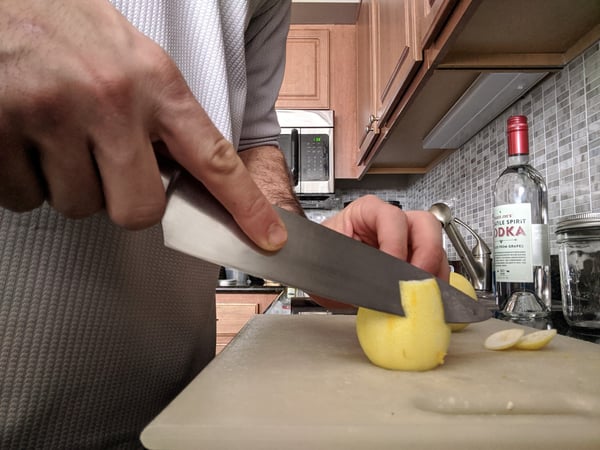
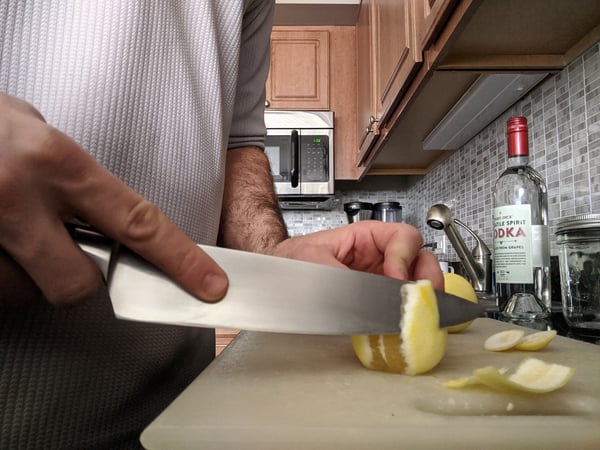
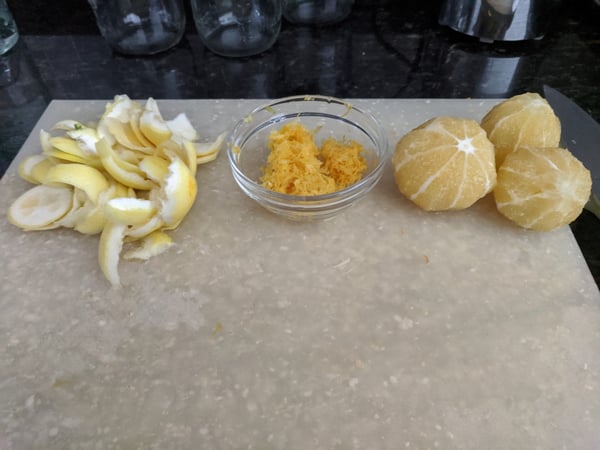
3. Cut up the flesh of the lemons and try to pick out as many of the seeds as possible.
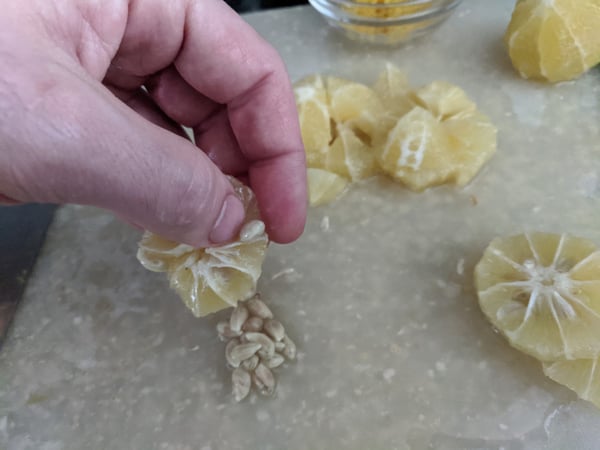
4. Put all the zest and flesh of the lemons into your blender and add enough of the vodka to come up about halfway on the lemon contents and blend until everything is pureed thoroughly. By only filling it this much with vodka, you allow the mixture to stay thicker and the friction helps to puree everything finer.
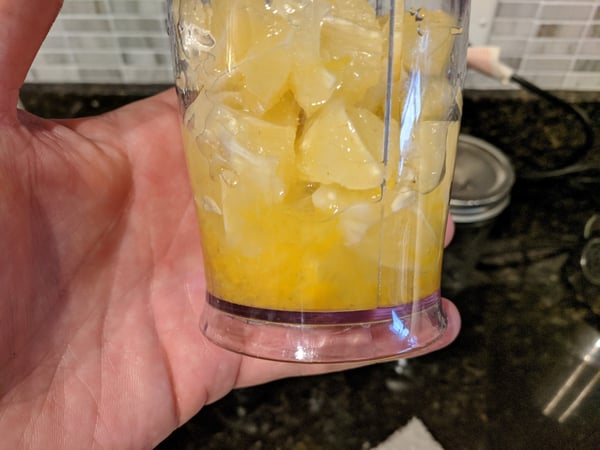
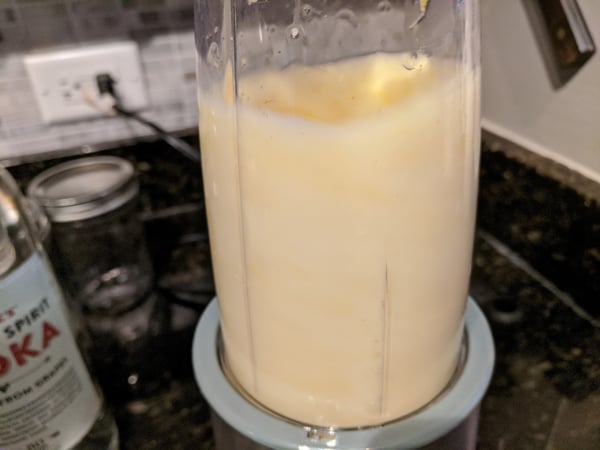
5. Pour the blended slush into a measuring cup to measure how much you have. Disperse this into your chosen vessels evenly and fill them the remainder of the way with the remaining vodka. Seal them tight and allow them to sit and meld for at least a month if not more.
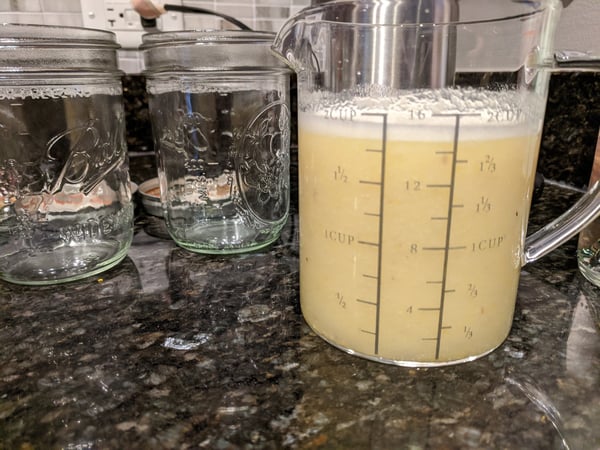
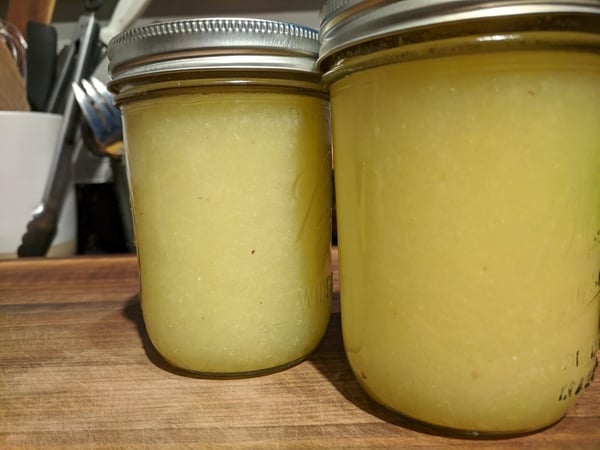
At this point you can drink it if you like, but when I am ready to put the lemon vodka into my gifting bottles, I like to re-blend it one more time to be sure it is as smooth at possible and for a nice clean look, you can strain it through a fine mesh.
There you have it - a homemade lemon vodka that is fun and a neat gift for friends at very little cost. The best part is, if you don’t feel like giving it away you can always make a house drink and that will be your secret ingredient!
Learn how to make the perfect cocktail in The Chopping Block's Cocktails 101 class on Saturday, February 29 at 6pm at the Mart.

